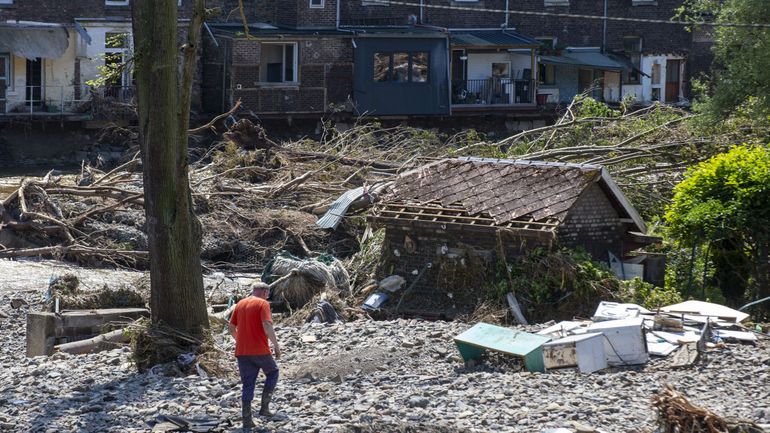The next "water bomb" or heavy rainfall over Flanders could cause damages estimated at around €2 billion, and could affect up to 100,000 people in the region, a recent analysis found.
July's deadly floods mainly ravaged Wallonia, and although they affected fewer areas in Flanders, where the water in the Meuse and Demer basins rose to extreme heights, a recent analysis highlighted the possible disastrous impact of another similar "water bomb" exploding over the region.
"The first analysis was very alarming. The damage would be estimated at €2 billion, with 50,000 to 100,000 people affected. We must arm ourselves against frequent periods of (extremely) high precipitation," said Flemish Minister of Mobility and Public Works Lydia Peeters.
This would be the impact of a "waterbomb" based on information from the European Flood Risk Directive (ROR) and the river basin management plans 2022 - 2027, which gave a picture of the water damage if heavy rainfall affected Flanders' 11 river basins.
Now, a multidisciplinary expert panel is being put together to help the Flemish government better understand the risk of future exceptional rainfall and prepare for possible floods resulting from extreme weather conditions.
The group includes Henk Ovink, a water expert at the United Nations, who will be chairing the panel, as well as academics and policymakers, experts in hydrology and hydraulics, architects, spatial planners and climate experts.
Related News
- Ruined photos from flood victims restored for free
- Chocolate producer partly resumes production at flooded factory
They will work on a number of fronts, from more practical solutions such as successfully draining and retaining rainwater to prevention in flood-prone areas and developing warning systems.
"Due to climate change, extreme weather conditions are becoming more common. Therefore, Flanders must continue to invest in good flood forecasting tools, but at the same time further secure potentially critical points against future 'water bombs'," said Flemish Environment Minister Zuhal Demir.
"Today's estimates and impact analyses give us extra ammunition and sufficient arguments to continue the fight tomorrow and protect Flanders even better."
In addition, the company that oversees the Flemish waterways, De Vlaamse Waterweg, in cooperation with the governmental organisation that looks into human's impact on waterways, Waterbouwkundig Laboratorium, will work on a more local analysis of the problem.
By means of hydraulic modelling, the impact of extreme precipitation events on water levels and water damage along Flemish waterways will be mapped out in more detail.

